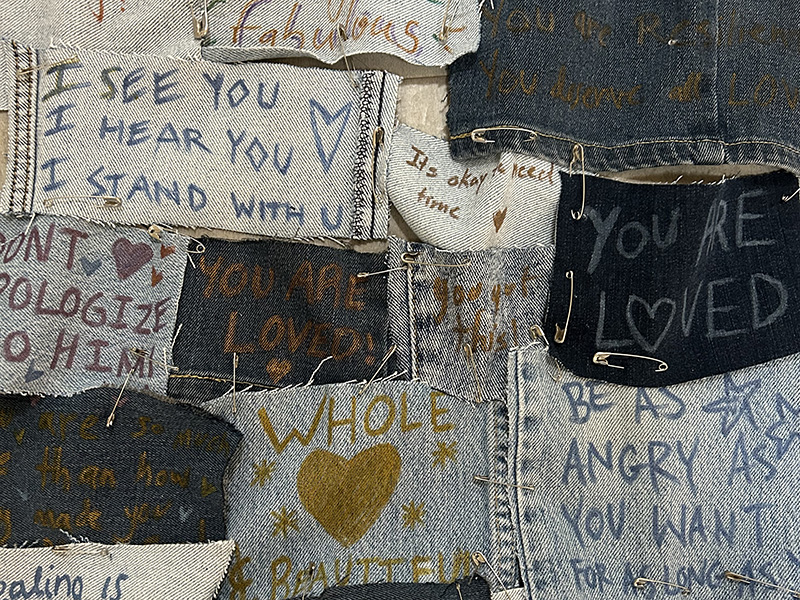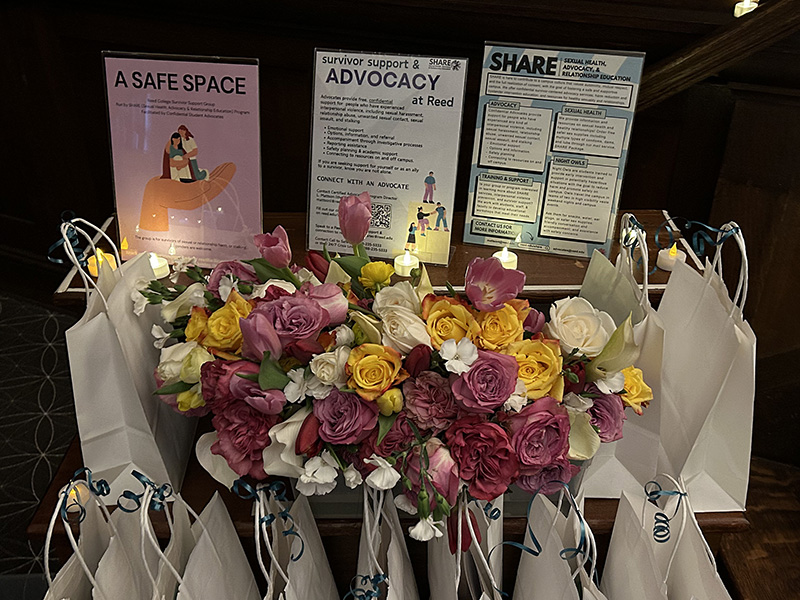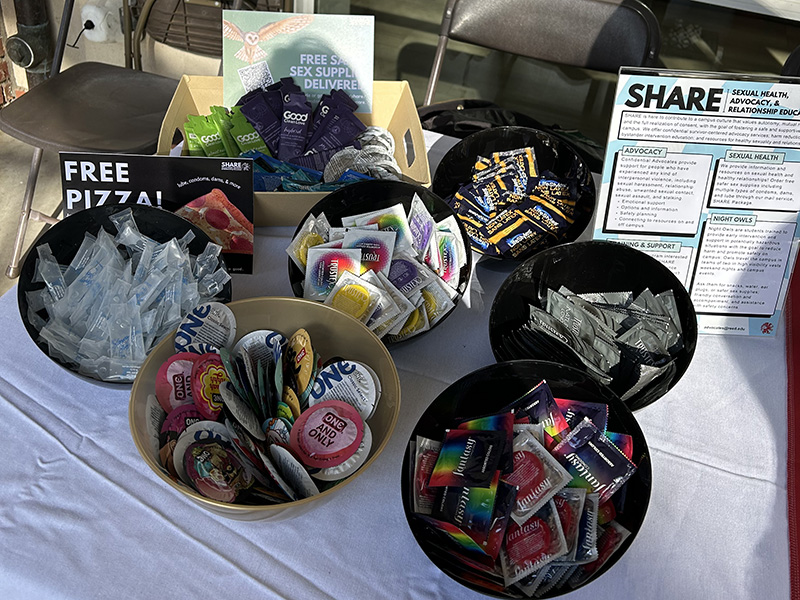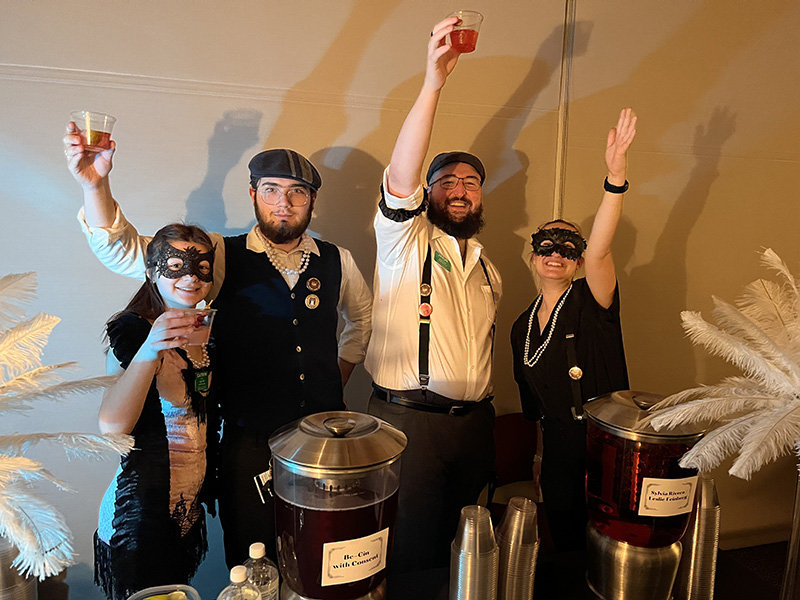SHARE is a peer resource—both our Night Owls and Peer Educators (on the Outreach & Advocacy team) are students—to prevent harm and promote healthy relationships. All SHARE students are here to help navigate campus resources and advocate for real cultural change in support of those with personal or allied experiences of sexual and relationship violence.
Our student-driven program
Sexual Health, Advocacy & Relationship Education—SHARE—is Reed’s student-driven, trauma-informed, and survivor-centered program to provide resources, services, and information about both healthy sexuality and relationships and sexual and relationship violence prevention.
Resources

Outreach & Advocacy
Reed's Outreach & Advocacy team includes Peer Educators—on-campus leaders who coordinate awareness and engagement events to promote a culture of consent and respect. They also provide violence prevention and healthy relationships education to students and the broader campus community through workshops, tabling events, and campaigns.
Check out our SHARE Blog! It's still in the building phase, but soon, you will find upcoming events, peer collected resources, Night Owl 101 and more.
Upcoming SHARE Events
About SHARE
SHARE’s mission is to foster a safe and supportive campus. We are committed to cultivating and inspiring a culture that values autonomy, mutual respect, and the full realization of consent. We do so by offering confidential, survivor-centered advocacy services; facilitating connections to resources on and off campus; and providing harm reduction and bystander intervention education as well as resources encouraging healthy sexuality and relationships.


